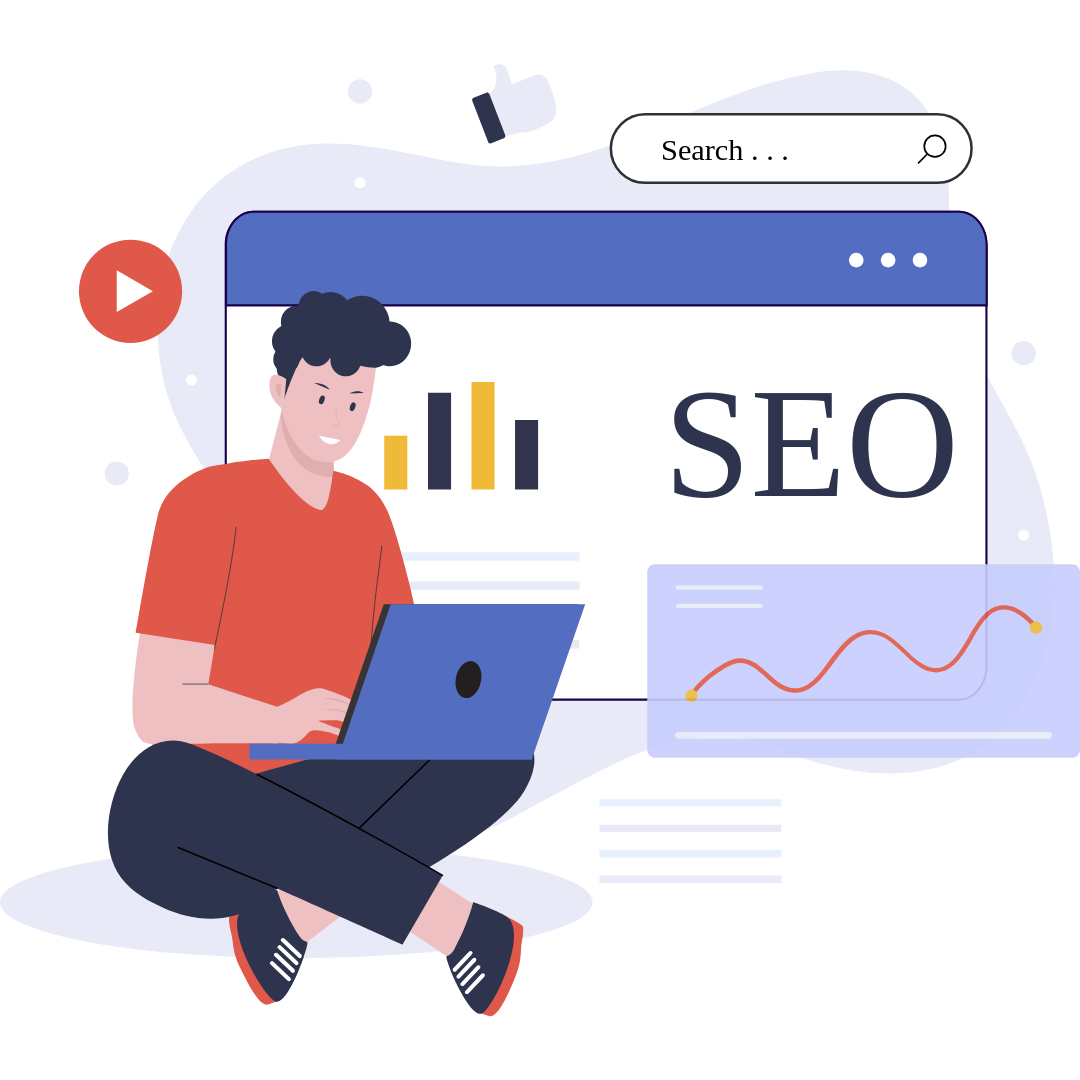The Essential Guide to SEO: Boosting Your Online Visibility
What is SEO?
SEO, or Search Engine Optimization, is a set of strategies and techniques used to improve the visibility of a website on search engines like Google, Bing, and Yahoo. When someone searches for a keyword related to your business, SEO helps ensure that your website appears near the top of the results. Unlike paid advertising, SEO focuses on organic (non-paid) search results, which can lead to more sustainable long-term growth.
SEO involves a combination of on-page and off-page tactics, as well as technical optimizations, all aimed at making your website more attractive to search engines and, ultimately, to users.
Why SEO Matters for Your BusinessWith more than 90% of online experiences beginning with a search engine, SEO is critical to driving traffic, generating leads, and growing your business. Here’s why SEO is so important:
-
Increased Visibility: The higher your website ranks on search engines, the more likely people are to click on your link. A strong SEO strategy ensures that your website is visible to those searching for relevant keywords.
-
Cost-Effective Marketing: Unlike pay-per-click (PPC) advertising, SEO doesn’t require you to pay for each click. While it requires an investment of time and resources, the long-term benefits of SEO can far outweigh the costs.
-
Targeted Traffic: SEO helps you attract visitors who are actively searching for products or services like yours. This means the traffic you receive is highly targeted, leading to higher conversion rates.
-
Credibility and Trust: Websites that rank higher on search engines are often perceived as more credible and trustworthy. Effective SEO can help build your brand’s reputation and authority in your industry.
-
Better User Experience: SEO isn’t just about search engines—it’s also about improving the user experience. By optimizing your website for SEO, you’re also making it faster, easier to navigate, and more user-friendly.
-
Competitive Advantage: If your competitors are investing in SEO and you’re not, you’re likely losing potential customers to them. SEO helps you stay competitive by ensuring that your website ranks alongside or above your competitors.
SEO is a multifaceted discipline, involving various techniques that work together to improve your website’s visibility. Here are some of the key elements of a successful SEO strategy:
-
Keyword Research: Keywords are the foundation of SEO. Keyword research involves identifying the terms and phrases that your target audience is using to search for products or services like yours. By incorporating these keywords into your content, you increase your chances of ranking higher on search engines.
-
On-Page SEO: On-page SEO refers to the optimizations you make directly on your website. This includes:
- Title Tags and Meta Descriptions: These are the snippets of text that appear in search results. They should be compelling and include relevant keywords.
- Header Tags (H1, H2, etc.): These tags help structure your content and make it easier for search engines to understand.
- URL Structure: Clean, keyword-rich URLs are more likely to rank well and be clicked on by users.
- Content Optimization: High-quality, informative, and keyword-optimized content is essential for SEO. Your content should address the needs and questions of your audience.
-
Technical SEO: Technical SEO involves optimizing the backend of your website to improve its performance and ensure that search engines can crawl and index your site effectively. Key technical SEO elements include:
- Site Speed: Fast-loading websites provide a better user experience and are favored by search engines.
- Mobile-Friendliness: With more people accessing the internet via mobile devices, having a mobile-responsive website is crucial.
- XML Sitemaps: An XML sitemap helps search engines understand the structure of your website and index your pages more efficiently.
- Robots.txt: This file tells search engines which pages they should or shouldn’t crawl.
-
Off-Page SEO: Off-page SEO focuses on building your website’s authority and reputation through external factors. The most important aspect of off-page SEO is link building, which involves getting other reputable websites to link back to your site. High-quality backlinks signal to search engines that your website is trustworthy and authoritative.
-
Local SEO: If you have a local business, optimizing for local SEO is essential. This involves claiming and optimizing your Google My Business profile, getting listed in local directories, and encouraging positive reviews. Local SEO helps you attract customers in your geographic area.
-
Content Marketing: Content is king in the world of SEO. Regularly publishing high-quality, relevant content not only helps with keyword optimization but also keeps your audience engaged and encourages them to share your content. This can lead to more backlinks and higher rankings.
SEO is not a set-it-and-forget-it strategy. It requires ongoing monitoring and adjustments based on data. Tools like Google Analytics and Google Search Console provide valuable insights into how your website is performing, which keywords are driving traffic, and where there are opportunities for improvement. Regularly reviewing and analyzing this data allows you to refine your SEO strategy and achieve better results over time.
Common SEO Mistakes to AvoidWhile SEO can be incredibly effective, there are common pitfalls that businesses should avoid:
-
Keyword Stuffing: Overloading your content with keywords can lead to a poor user experience and can be penalized by search engines. Focus on natural, meaningful use of keywords.
-
Ignoring Mobile Optimization: With the increasing use of mobile devices, not optimizing your website for mobile can hurt your rankings and user experience.
-
Neglecting Technical SEO: Even with great content, poor site structure or slow load times can negatively impact your SEO efforts.
-
Buying Links: While backlinks are important, buying links from low-quality sites can lead to penalties from search engines. Focus on earning organic links through valuable content.
-
Not Updating Content: SEO is not a one-time task. Regularly updating and refreshing your content keeps it relevant and helps maintain your rankings.
SEO is a powerful tool that can drive significant traffic to your website, increase your visibility, and help you achieve your business goals. While it requires time and effort, the long-term benefits of SEO make it a worthwhile investment. By implementing a comprehensive SEO strategy that includes keyword research, on-page and off-page optimization, technical SEO, and regular analysis, you can position your website for success in the competitive digital landscape.
Ready to take your SEO efforts to the next level? Contact gigabyte-inc today to learn how our expert SEO services can help you achieve higher rankings, attract more visitors, and grow your business.









Popular Comments